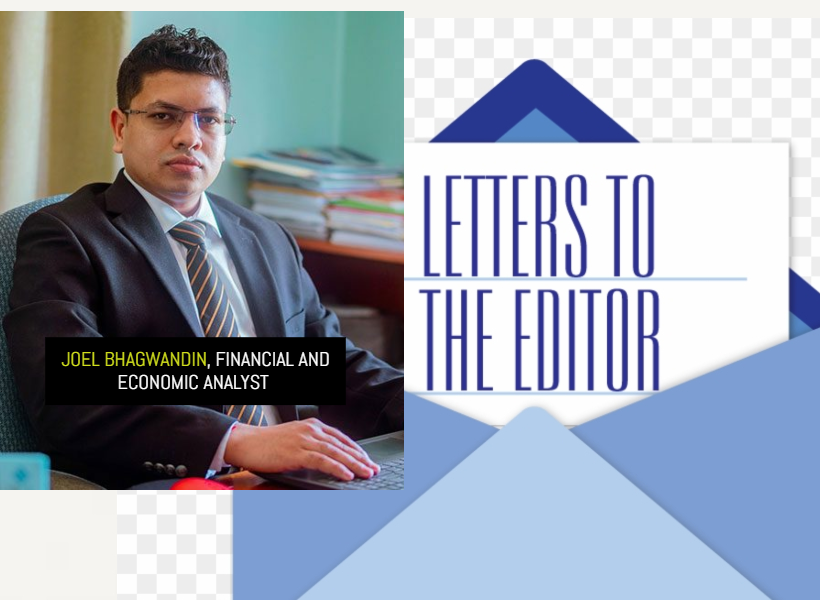Dear Editor,
Reference is made to a Kaieteur news editorial dated June 25th, 2023, with the caption, “New oil bill proves PPP promise of Petroleum Commission just a pipe dream.” The editorial contended that the draft bill proposes to confer sweeping powers upon the minister―representing a significant expansion of political authority over the oil and gas sector. The provisions in the bill that would enable the minister to cede these powers to an independent Petroleum Commission is particularly troubling for some stakeholders, according to the editorial.
Editor, I respectfully submit that the aforementioned editorial is somewhat misguided. To this end, it must be noted that the Petroleum Activities Bill deals exclusively with the management of Petroleum Activities whereas the primary function of a Petroleum Commission is of a regulatory nature. Hence, these are two distinct functions which should be separate from each other. As such, the Petroleum Commission ought to be governed by a separate piece of legislation.
With this in mind, the regulatory functions of the industry and the management functions are both carried out by the ministry at this time. It is understood that until a Petroleum Commission is established, the regulatory functions shall be transferred to the Commission.
It should be appreciated as well that since the Petroleum Commission is intended to be an independent body, the procedure for its establishment will have to conform with those associated with setting up a bipartisan functioning agency. For example, it may require a minimum of two-thirds majority of the National Assembly to approve same, the Commissioners will have to be sanctioned by both the government and opposition, and inclusion of other stakeholder representatives.
It is wise, therefore, to ensure that the framework to manage the sector is updated with modern laws and regulations, fully functional and operational, and then the next step would be to work on establishing the regulatory framework, viz-á-viz, the Petroleum Commission.
Editor, on a different note, I would like to address another issue which has to do with the interest rate question posed to the Vice President by Kaieteur News and which was picked up by GHK Lall.
When asked, the Vice President rightfully directed the media house to raise the question with the oil companies, in this case, EEPGL since it is the oil companies that have raised the financing.
But, more importantly, this is not even a question that should be asked in the first place because the financial statements of EEPGL and its co-venture partners are publicly available. In fact, Kaieteur News and all of the other media houses are in possession of same and would have published several articles relating their 2022 financials. This means that they are in possession of the answer to the question on cost of capital whether it is the interest rate on the debt financing or the return on equity (ROE/ cost of equity) for the equity capital, and/or the weighted average cost of capital (WACC). Any trained accountant, finance professional or an economist can calculate all of the foregoing using financial statements.
So, I have done these calculations and written a few articles previously already, and I am happy to restate here. There is a mathematical formula that can be applied to calculate the implicit interest rate on the debt financing using the information reported in the notes of the financial statements. The implicit interest rate is 5.18%. See full article here by the undersigned. https://www.guyanastandard.com/2023/04/20/i-disagree-with-calls-to-cap-interest-rates-for-stabroek-block-projects/.
The formula to determine the cost of equity would be the same as return on equity (ROE), which can be calculated using the formula: Net Income / Shareholders’ Equity. Applying this formula to answer the question “what is the return on equity to EEPGL and its coventurers”, the answer is 12.5%. Now that we have the cost of equity and the cost of debt, we can calculate the WACC which would work out to 9.86%. Importantly to note is that the 9.86% WACC is for the Guyana market and when compared to ExxonMobil’s global WACC which is about 10.8%, the cost of capital for Guyana is not bad. As shown here, it is below the company’s global WACC by 0.94 percentage points. See full financial statement analysis here by the undersigned https://www.guyanastandard.com/2023/06/04/analysis-of-eepgl-hess-and-cnoocs-2022-financial-statements/.
With that said, I do hope that we can now put the interest rate question to rest and if KN wishes, they can have an accountant of their choice calculate the numbers for their publisher. And finally on the Petroleum Bill, it might be useful to note that the undersigned submitted feedback to the Ministry on Monday June 26th, 2023, well before the two weeks deadline.
Yours sincerely,
Joel Bhagwandin













